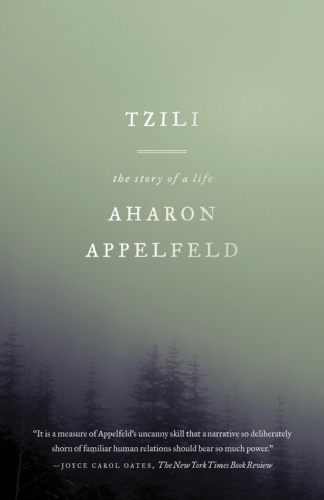
Until the Dawn's Light
A Novel
کتاب های مرتبط
- اطلاعات
- نقد و بررسی
- دیدگاه کاربران
نقد و بررسی

August 22, 2011
Tense, occasionally heavy-handed, but ultimately compelling, the latest from Appelfeld (Blooms of Darkness) depicts the world of early 20th-century Austrian Jews, many of whom have abandoned their ancestral traditions and converted to Christianity. Tragic heroine Blanca will remind readers of Hardy’s luckless Tess, for Blanca’s essential decency and self-sacrificing attempts to do right end, fatefully and inexorably, in suffering. Through a journal she keeps for her four-year-old son, Otto, Blanca presents her story of unremitting, inexplicable misery. After the Jewish Blanca marries her gentile, ominously named high school classmate Adolf following a whirlwind (but remarkably unromantic) courtship, her life becomes unbearable. Blanca feels herself “enslaved,” trapped in a marriage to an abusive, bombastically anti-Semitic man. Though she feels hopeless after her mother’s death and her father’s tragic disappearance, the birth of her son renews Blanca’s strength and drives her to an act that will send her and Otto fleeing. As she tries to outrun her past, Blanca faithfully records her own history and surveys the loss of faith among Austrian Jews; with this, the story of one woman’s misfortune takes on the magnitude of history.

August 15, 2011
Distinguished fiction by one of Israel's most prominent novelists.
Appelfeld sets his novel in the early 20th century in the far reaches of the Austrian Empire. Blanca is a promising high-school student, particularly gifted in Latin and mathematics, and she plans to do university study as well, perhaps in Vienna. But when she starts tutoring Adolf, an imposing physical specimen though woefully deficient as a human being, she falls in love, and they decide to marry. Blanca rejects her Jewish heritage and converts to Christianity but quickly finds that Adolf is scarcely the man of her dreams. He's bad-tempered and churlish and has a particular animus against Jews. Blanca finds herself trying to balance competing family claims when her mother has a lengthy stay at a tuberculosis hospital and her father is confined to an "old people's home," largely at Adolf's insistence, at the young age of 53. Adolf, a drunk, becomes progressively more impossible to live with. The stakes are even higher when Blanca gets pregnant and has a son, Otto, whom Adolf also alternately neglects and mistreats. When Blanca can stand it no more, she takes it on the lam with Otto after committing a brutal crime. Their life becomes a journey both of calm and of fear, especially when she begins to see "wanted" posters cautioning people to be on the lookout for her. Blanca's journey is not solely geographical, for she also explores the forced rejection of her Jewish roots as she deals with a culture that is virulently anti-Semitic.
A beautiful and affecting novel, Tolstoyan in its compassion for humanity.
(COPYRIGHT (2011) KIRKUS REVIEWS/NIELSEN BUSINESS MEDIA, INC. ALL RIGHTS RESERVED.)

August 1, 2011
Celebrated Israeli author Appelfeld (Blooms of Darkness) offers a tale of repression, brutality, and the quest for survival among rural Austria's Jewish population in the early 1900s. Successful in school, intelligent young Blanca dreams of studying mathematics at the university. Her Jewish parents no longer practice their faith, whereas her grandmother is a believer in strict religious tradition. In school, Blanca is drawn to a physically large and mentally deficient young man named Adolf Hammer and gives up her plans for further study to marry him. Since he is a Christian and anti-Semitic, she renounces her faith, as many others did at this time in the history of European Jewish assimilation. Soon, however, Adolf establishes a pattern of drinking and physical and verbal abuse. When Blanca gives birth to a son, Otto, who is sick and weak, Adolf and his family blame his poor health on his Jewish lineage, and Adolf's brutality increases. Finally, Blanca must take matters into her own hands. VERDICT A worthy addition to the oeuvre of an acknowledged master of the plight of Europe's Jews before and during the Holocaust; Appelfeld makes every word count as he hauntingly depicts the tragedy of the human condition. For all readers of literary fiction.--Jim Coan, SUNY at Oneonta
Copyright 2011 Library Journal, LLC Used with permission.

September 1, 2011
Israeli novelist Appelfeld's (Blooms of Darkness, 2010) affecting tale follows the life of 23-year-old Blanca and her young son, Otto, in early twentieth-century Austria. In flashbacks, teenage Blanca is a promising academic at the local high school. Introspective and timid, she begins tutoring a gruff classmate, Adolf, and soon falls in love. She is thrilled when Adolf asks for her hand in marriage, and quickly converts from Judaism to Christianity in order to wed. Once they are married, however, Adolf becomes controlling and physically abusive. After Blanca's beloved mother dies, Adolf forces Blanca to leave her disconsolate father in an old-folks home. Soon after, Blanca discovers she is pregnant. When her son, Otto, is a few months old, Adolf commands Blanca to go to work. Though disheartened to leave Otto, she begins to find the strength to escape her abuser, culminating in a shocking event that forces mother and son to flee their small town. As the two evade the authorities, Blanca is determined to protect Otto from further tragedy. Appelfeld's graceful narrative deepens Blanca's harrowing story.(Reprinted with permission of Booklist, copyright 2011, American Library Association.)

























دیدگاه کاربران